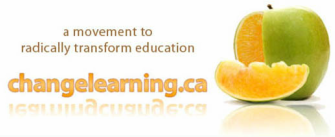(Source: Canadian Council on Learning)
Link:
https://www.childcarecanada.org/documents/research-policy-practice/17/11/let-children-play-natures-answer-early-learning

|
|
|
Play enhances every aspect of children’s development and learning, however, it is increasingly rare for children to have long, uninterrupted blocks of time to play indoors and outdoors, by themselves or with their friends. Although children learn to play naturally, we all have a role in ensuring that children have enough time and opportunity to play.
(Source: Canadian Council on Learning) Link: https://www.childcarecanada.org/documents/research-policy-practice/17/11/let-children-play-natures-answer-early-learning
2 Comments
Success By 6 Peel builds and expands community support for children by strengthening services for young children and their families. Research-informed and neighbourhood-based, Success By 6 Peel envisions a community where all children thrive and are valued, respected, nurtured, loved and given the opportunity to develop to their full potential as creative, caring, competent and responsible adults.
Read more Play enhances every aspect of children’s development and learning, however, it is increasingly rare for children to have long, uninterrupted blocks of time to play indoors and outdoors, by themselves or with their friends. Although children learn to play naturally, we all have a role in ensuring that children have enough time and opportunity to play.
(Source: Canadian Council on Learning) Link: http://www.ccl-cca.ca/CCL/Reports/LessonsInLearning/LinL20061010LearninPlay.htm The annual Survey of Canadian Attitudes toward Learning (SCAL) provides a unique opportunity to gauge the opinions, perceptions, and beliefs of Canadians about various aspects of learning in Canada. Now in its second year, the survey was designed by the Canadian Council on Learning (CCL) in consultation with Statistics Canada, which administered the survey on behalf of CCL.
Link: http://www.ccl-cca.ca/CCL/Reports/SCAL/ The new research synthesis produced by SEDL’s National Center for Family and Community Connections with Schools examines the impact of different family and community connections on student achievement.
Authors Anne Henderson and Karen Mapp reviewed more than 50 research studies published since 1995 to compile A New Wave of Evidence. The synthesis shows that for parent involvement to have an impact on achievement, schools must link parent activities to student learning goals and be respectful of difference among families. Schools that succeed in engaging families from very diverse backgrounds: * Focus on building trusting collaborative relationship among teachers, families, and community members * Recognize, respect, and address families’ needs, as well as their differences * Embrace a philosophy of partnership where power and responsibility are shared. Link: http://www.sedl.org/pubs/catalog/items/fam33.html Schools can’t do it alone.
If we truly want to provide the best learning opportunities for our kids, education needs to be more like a three-legged stool – with the structural support of home, school and community all working together. But here’s the thing. If all three legs are strong and equal, the stool is perfectly stable and functional. If one of the legs is damaged or removed, the stool can’t hold any weight. It can’t do its job, no matter how much we try to patch and reinforce the remaining legs. Read more Our society has undergone radical shifts in everything from family structure to demographics to where and how families and children spend the majority of their time. Canadian schools, first developed in the context of the family farm and small town, have struggled to respond to the massive shifts that have taken place in how children are living their lives outside of the classroom walls.
Read more The annual Survey of Canadian Attitudes toward Learning (SCAL) provides a unique opportunity to gauge the opinions, perceptions, and beliefs of Canadians about various aspects of learning in Canada. Now in its second year, the survey was designed by the Canadian Council on Learning (CCL) in consultation with Statistics Canada, which administered the survey on behalf of CCL.
Link: http://www.ccl-cca.ca/CCL/Reports/SCAL/ |
Categories
All
Archives
August 2015
|